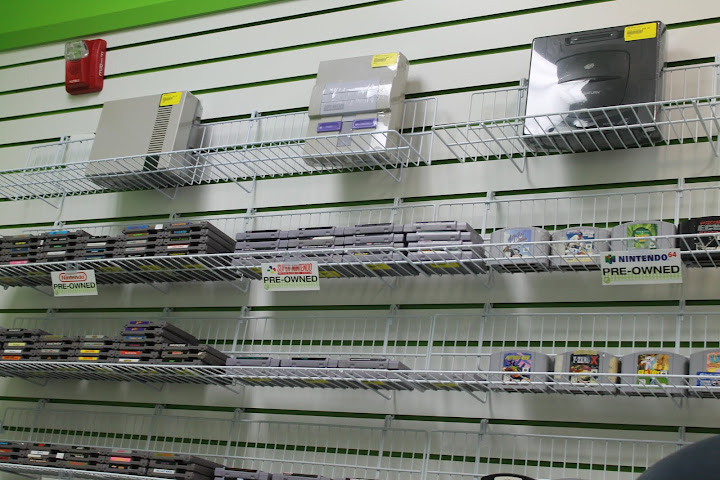Shunning Used Games Will Be Bad For Business
Rumors have been running rampant lately that the “Xbox 720,” that is, Microsoft’s next generation console, won’t be able to play used games. Microsoft, of course, has dismissed this as merely “rumor and speculation,” but without denying it outright, and the internet has most certainly become lively regarding this possibility. Most recently, Volition designer Jameson Durall spoke out about the rumor saying, “Personally I think this would be a fantastic change for our business and even though the consumers would be up in arms about it at first…they will grow to understand why and that it won’t kill them.”
Durall goes on to say on #AltDevBlogADay, “In the end, I fully believe that we have to do something about these issues or our industry is going to fall apart. People often don’t understand the cost that goes into creating these huge experiences that we put on the shelves for only $60. They also don’t seem to realize how much they are hurting us when they buy a used game and how pirating a copy is just plain stealing. Maybe something as simple as educating them could help solve the problem…”
First, if you believe the numbers on VGChartz, Volition’s last big hit game, Saints Row: The Third sold over 3.68 million copies. At “only $60,” that comes out to roughly $220 million dollars in revenue – almost a quarter of a billion dollars. Let me think about how many Bugatti Veyrons I can buy with that… one… two… oops, lost count! Let me grab my calculator…
Mr. Durall is wrong on a couple of points. Number one, billions of dollars’ worth of used goods are bought and sold daily, most notably in the automotive industry. The industry has offset this loss by offering used cars through factory dealerships and offering extended warranties or service at a discount. Similarly, the video game industry has taken to offsetting this loss by requiring a code for online play. If you purchase a game new, this code is included and you’re allowed to play online out-of-the-box. However, if you purchase the game used, then for many titles, you will need to purchase a code through PSN, Xbox Live, or their own online outlets before being able to play online with your friends. Doing this has actually lowered the cost of used games that offer online play at retailers, generally by about the same amount of money that the code costs. So, if a used game’s price tag was once $54.99, that game is now going to be $40-45 to offset the additional ten or fifteen bucks you’ll spend for that code.
To continue the comparison, the automotive industry (after trimming a significant amount of fat and re-budgeting) maintains profitability even though the used car market accounts for twenty percent of overall sales in the US. Perhaps the video games industry could learn a lesson from the automotive makers if they’re hurting for money so bad.
Now, while Mr. Durall talks about how much money the developers are missing out on (it’s roughly 157 Bugatti Veyrons by the way), he doesn’t take into account that people who buy used video games are those who generally can’t afford to purchase them new or have to split their limited funds in order to purchase all of the games they want to play. I can easily name 20 Triple-A titles that hit in 2011. At $60 a piece (plus tax), a person would have to spend roughly $1,200 in a year to get all of those titles. Any thirty-something that isn’t making $70K or more a year is going to find that to be a bitter pill to swallow – and that’s just the Triple-A stuff.
Going to my second point: other developers and publishers that are trying to get out a new idea or IP at a retail price or budget price will simply be pushed out of the market as consumers will be forced to make a choice of where to spend their money. Do you buy Modern Warfare 3 or Skyrim? Uncharted 3 or Deus Ex: Human Revolution?
Gunstringer? Sorry, can’t afford to chance it. New ideas will effectively be snuffed out as proven IPs will continue to gain prominence and consumer dollars, not because of a lack of interest, but because of a lack of wanting to take a risk on a game the consumer can’t trade in if they don’t like. By implementing a “No used games” policy, you will stifle innovation, not motivate it.
Game publishers have a good idea with the online codes for multiplayer or online play. It’s easy, effective, and doesn’t push out those who have to keep a tight budget on what they buy. For an industry that made 16.6 billion dollars in 2011 (or 11,800 Bugatti Veyrons) in a time where the economy is, for all intents and purposes, in the toilet, to say that people shouldn’t be allowed to buy used games is insensitive.
The Microsoft camp has dismissed this for now by saying that they don’t comment on rumors or speculation. However, I think we can all agree that Microsoft, or any one of the big three console manufacturers, will need the backing of the other two to be able to implement this profitably. If any one of the console makers attempted to go this alone, it would drive consumers in droves to the other two without a second thought, and quite possibly be heralded as the worst business decision in video game history. Of course, Trip Hawkins has had that title for about 20 years now with the 3DO, so I guess it could be time for a new winner.
About This Post

